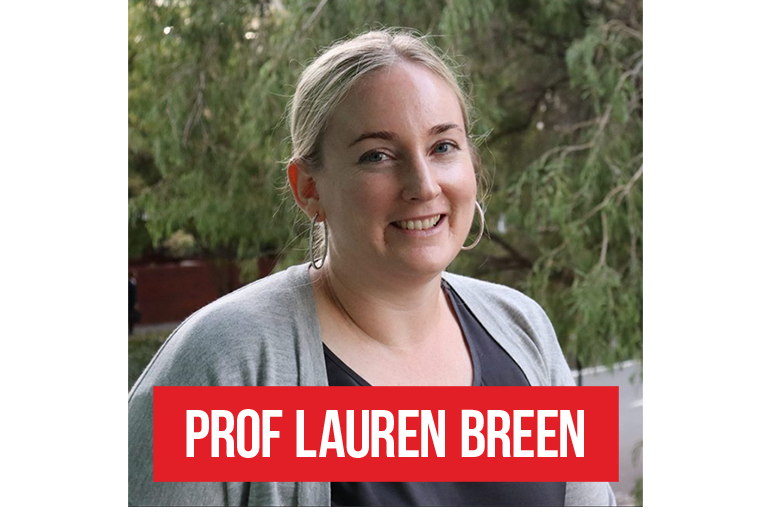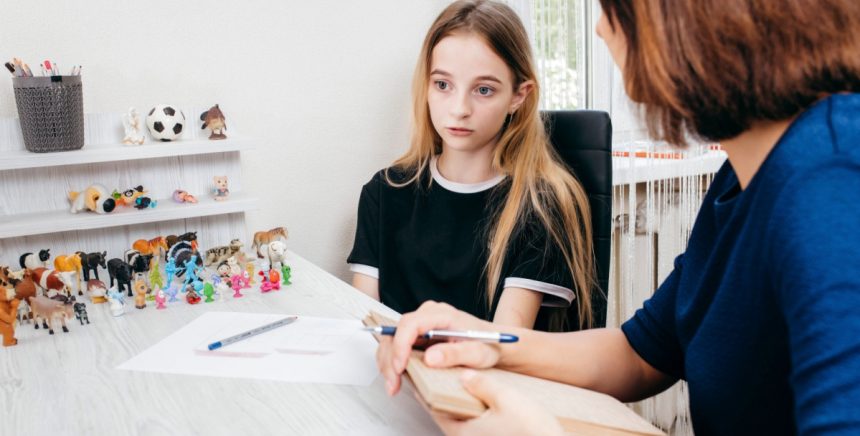Children who have experienced the death of a loved one will benefit from gaining a better understanding about why and how people die, says new Curtin University-led research.
The findings – What children want to know about death and grief – were published in the Journal of Child and Family Studies and are the result of inviting 220 bereaved children, aged between five and 12 years, to submit questions about death and grief. All children who were asked to share their own questions were attendees at one of 10 Lionheart Camp for Kids events, designed to support grieving children.
Curious questions = better understanding
With approximately one in 20 children in Australia experiencing the death of a parent or sibling, the not-for-profit organisation is a bereavement program that aims to help grieving young people connect with a compassionate and caring community that enables the children to see grief as a healthy, natural and normal response to loss. By asking questions, the impacted children can explore a better understanding about their curiosity and feelings about these significant life events.
Professor Lauren Breen from Curtin School of Population Health is the study’s lead researcher and says the children’s questions offered important insights into their feelings, thoughts and curiosity about death following a loved one’s loss.
The study showed that children were curious about both how and why people die, as well as ways death may be delayed or prevented. Wondering how to make sense of death, as well as managing and understanding grief, understanding life and death, learning about how medical interventions work and wanting to know more about what happens to people after they die were also on their minds.
“Approximately five to seven per cent of children in Western countries will experience the death of a parent or sibling before the age of 18,” Professor Breen says, adding that the figure increases to 50 per cent when the loss of a close family member or friend is included.
“Bereaved children are also at a higher risk of developing anxiety, depression, poor academic performance, suicidal thoughts and engaging in substance use,” she says.
“These statistics are alarming and have only increased following the rise of COVID-19, where an estimated 1.1 million children worldwide experienced the death of a parent in the first 14 months of the pandemic. It is critical to ensure effective and appropriate strategies are in place, such as camps like Lionheart Camp for Kids, to support grieving children, while also ensuring parents have the best tools to help them cope with the death of a loved one.”
With her 20-plus years of grief research motivated by her own personal experiences of grief, Professor Breen told The Bursar the study is “a result of an ongoing research partnership between Curtin University and Lionheart Camp for Kids” and was co-authored by researchers from the Curtin School of Population Health, Lionheart Camp for Kids, Perth Children’s Hospital, and the Curtin enAble Institute.

“To date, we have co-authored three journal articles, participated together in three podcast episodes, and presented together at conferences,” she says. “Partnership with organisations like Lionheart Camp for Kids helps my research to directly influence policy and practice in Australia and internationally.”
Some of the questions the children asked included:
- What is the meaning of life?
- How does the body actually die?
- What type of sicknesses can people die from?
- Why did he leave me?
- Why do kids bully me at school now?
- How does a pacemaker work?
- What does it feel like to be in heaven?
“Our study was able to show that children who are experiencing the death of a loved one are curious about death and may want to openly discuss their feelings and ask questions to better understand why someone close to them is no longer around and how they can best cope with this major life change,” Professor Breen says.
Tailor support to suit individual needs and curiosity
Currently, a lot of information grieving children are provided by provided by health professionals and in school is based on their age and their development. As an alternative, Professor Breen believes it may be more appropriate to base these decisions on each individual child’s curiosity and own level of understanding.
“Ensuring there is adequate support in place for grieving children is important to helping them manage their emotions, process the grief and provide them with a set of coping skills that will help them through the next stages of life,” the professor says.
“It is very challenging for many adults to openly discuss grief with their children when they are also experiencing the same grief and loss. Our research shows that instead of shielding children which may be the natural instinct, it may be more beneficial for caregivers who are anticipating a death of a loved one to have open discussions with their children about what is happening and what this means for them.
“Further research is needed to better understand the experiences and perspectives of grieving children,” Professor Breen says. “By understanding this, more appropriate strategies could be set in place to provide the right level of support in a safe environment. This study shows that support services may benefit from considering not just what children need to know, but what they want to know about death and grief.”
But for adults or carers who are often also grieving, death and grief, she told The Bursar, are not easy to talk about, generally.
“Talking to children about death and grief is even more scary. In wanting to protect children from such topics, we might avoid these topics altogether,” Professor Breen says. “We found that bereaved children have lots of questions they want answered. Although it can be uncomfortable to broach these topics and can be challenging to find the right words, grieving children need adults around them who will encourage the asking of questions, listen to these questions, and answer them.”








